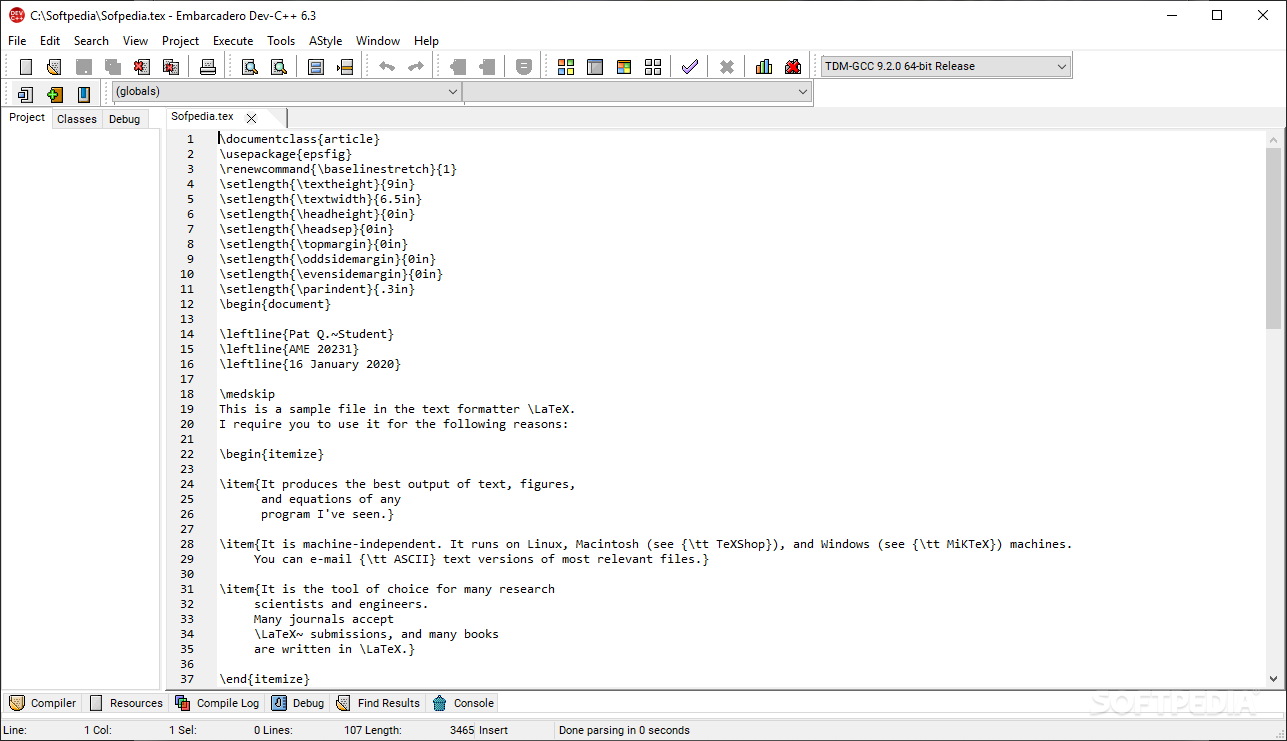Eclipse CDT (C/C Development Tooling) The CDT Project provides a fully functional C and C Integrated Development Environment based on the Eclipse platform. Features include: support for project creation and managed build for various toolchains, standard make build, source navigation, various source knowledge tools. The Eclipse CDT Project provides a fully functional C and C Integrated Development Environment based on the Eclipse platform. Features include: support for project creation and managed build for various toolchains, standard make build, source navigation, various source knowledge tools, such as type hierarchy, call graph, include browser, macro definition browser.
- Related Questions & Answers
- Selected Reading
Step 1 − Install MinGW GCC or Cygwin GCC
To use Eclipse for C/C++ programming, you need a C/C++ compiler. On Windows, you could install either MinGW GCC or Cygwin GCC. Choose MinGW if you are not sure, because MinGW is lighter and easier to install, but has fewer features.

MinGW GCC
To install MinGW, go to the MinGW homepage, www.mingw.org, and follow the link to the MinGW download page. Download the latest version of the MinGW installation program which should be named MinGW <version>.exe.
While installing MinGW, at a minimum, you must install gcc-core, gcc-g++, binutils, and the MinGW runtime, but you may wish to install more.
Add the bin subdirectory of your MinGW installation to your PATH environment variable so that you can specify these tools on the command line by their simple names.
Step 2− Install Eclipse C/C++ Development Tool (CDT)
Two ways to install CDT, depending on whether you have previously installed an Eclipse:
If you have already installed 'Eclipse for Java Developers' or other Eclipse packages, you could install the CDT plug-in as follows:
Launch Eclipse → Help → Install New Software → In 'Work with' field, pull down the drop-down menu and select 'Kepler - http://download.eclipse.org/releases/kepler' (or juno for Eclipse 4.2; or helios for Eclipse 3.7).
In 'Name' box, expand 'Programming Language' node ⇒ Check 'C/C++ Development Tools' ⇒ 'Next' ⇒ ... ⇒ 'Finish'.
If you have not install any Eclipse package, you could download 'Eclipse IDE for C/C++ Developers' from http://www.eclipse.org/downloads, and unzip the downloaded file into a directory of your choice.
Step 3− Configuration
You do NOT need to do any configuration, as long as the Cygwin or MinGW binaries are included in the PATH environment variable. CDT searches the PATH to discover the C/C++ compilers.
Your eclipse is now ready to run C++. In order to test it, open Eclipse. Now choose File → New → Project → C/C++ project. In 'Toolchains' box, choose your compiler, e.g., 'Cygwin GCC' or 'MinGW GCC' ⇒ Next.
Create a new file and Write some C++ code in the file. Right-click the project and select Build Project. Finally, right-click the project and select run as and then Local C/C++ application. This should run your application.
If you face any difficulties in installing/running the project, please visit https://www3.ntu.edu.sg/home/ehchua/programming/howto/EclipseCpp_HowTo.html for much more detailed instructions.
Latest Version:
DEV-C++ 5.11 LATEST
Requirements:
Windows XP / Vista / Windows 7 / Windows 8 / Windows 10
Author / Product:
Bloodshed Software / DEV-C++
Old Versions:
Filename:
Dev-Cpp 5.11 TDM-GCC 4.9.2 Setup.exe
MD5 Checksum:
581d2ec5eff634a610705d01ec6da553
Details:
DEV-C++ 2020 full offline installer setup for PC 32bit/64bit
The app is an open-source IDE environment, offering software solutions and the necessary tools for C++ app development. However, be aware that its toolset is focused more on novices and basic programming, and that open source community has not updated its toolset for a considerable time. Still, what is present in its latest version represents a highly-capable C++ IDE that could be used for years without encountering any issue.
If you are a novice, are a student who wants to create C++ project in a stable and easy to use software environment, or even if you are a seasoned programmer who wants to access C++ programming inside small IDE that will not strain your computer resources, DEV-C++ represents a perfect choice. It has all the required tools and feature sets for creating small to mid-sized apps.
It runs on all modern versions of Windows and can be used without any restrictions for free. It was originally developed as an open-source fork of the Bloodshed Dev-C++ IDE.
Installation and Use
Dev C For Eclipse 2017
Even though DEV-C++ is filled with advanced compiler, debugger and a wide array of dev tools, it’s installation package is quite small (only around 50 MB) and therefore can be easily installed on any modern Windows PC or laptop. Just follow the onscreen instructions, and in mere seconds DEV C plus plus will be ready for running. Other more developed modern IDE environments, on the other hand, require much more storage space, and their installation can run for minutes.Once up and running, you will be welcomed in a user-friendly interface that can be additionally customized to better fit your needs. The main window of the app follows the basic structure of many other modern IDE environments, with top row of dropdown menus and buttons that are shortcuts to its many built-in tools, a large vertical three-tabbed area for managing Projects, Classes and Debug listings, and of course, the main project area (with support for tabs) where you can start programming your apps. Both the app and the current project can be customized extensively. App Options window features tabs for Genera, Fonts, Colors, Code Insertion, Class Browsing, and Autosave customizations. Environment Options feature tabs for General, Directories, External Programs, File Associations, and CVS support customization.
C++ For Eclipse
Features and Highlights
Dev C For Eclipse Free
- Fully-featured IDE for developing C++ apps.
- User-friendly interface with many tools for managing project development.
- Resource-light and unobtrusive feature set.
- Focused on novices and mid-level programmers who want stability and reliability.
- Powerful compiler and debugger.
- Compatible with all the modern versions of Windows OS